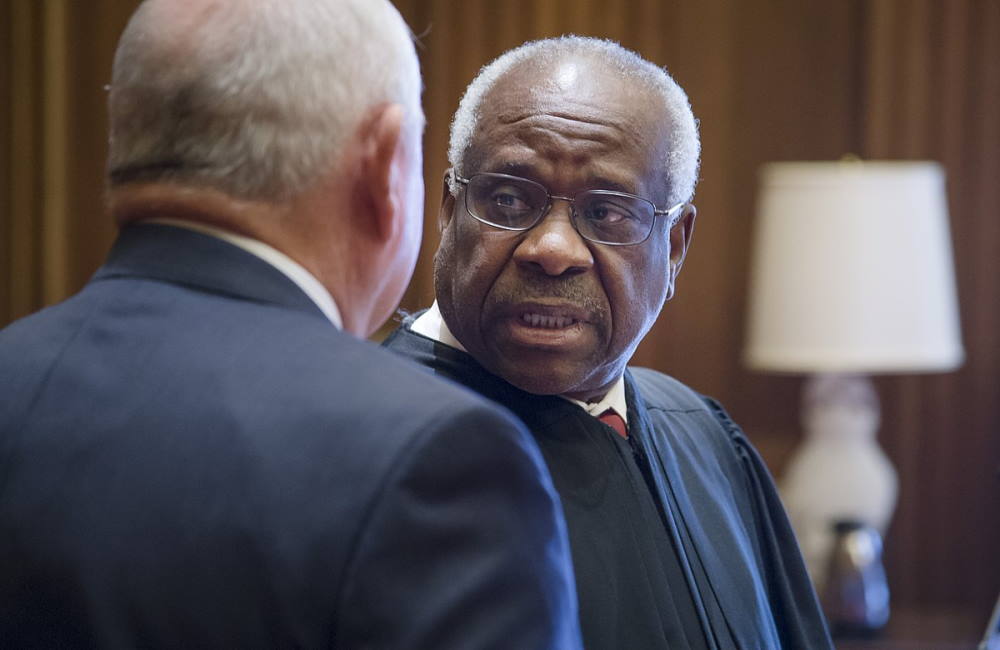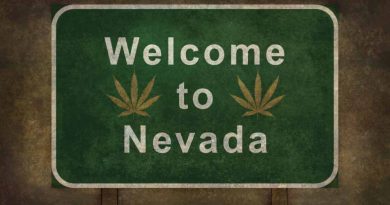Supreme Court Justice Clarence Thomas Says Marijuana Ban May Not Be Necessary
Legal marijuana supporters got help from a highly unlikely place this summer. In a case that challenged the federal ban on marijuana, the U.S. Supreme Court decided not to rule. But Justice Clarence Thomas wrote something about marijuana law that caused an immediate sensation.
In a statement about the case, Justice Thomas wrote: “A prohibition on interstate use or cultivation of marijuana may no longer be necessary or proper to support the federal government’s piecemeal approach.”
By piecemeal, he referred to the maze of federal laws on marijuana, which has kept the plant a Schedule I illegal drug on par with cocaine and heroin since the early 1970s. Thirty-six states now have a legal medical marijuana program and 18 states have legalized it for recreational use.
Justice Thomas went on to write: “Federal policies of the past 16 years have greatly undermined its reasoning. “The federal government’s current approach is a half-in, half-out regime that simultaneously tolerates and forbids local use of marijuana.”
A Clear Signal On Where Justice Thomas Stands
The decision from Justice Thomas came in a case filed by a medical marijuana dispensary in Colorado. The dispensary owner claimed that he should not be denied federal tax breaks enjoyed by businesses outside of the cannabis industry.
The U.S. Court of Appeals in Denver ruled against the dispensary. The Supreme Court decided not to hear the appeal of that decision. But the case coming before the court allowed the justices to write about it, which Thomas chose to do.
While the statement from Thomas has no force of law behind it, he provided marijuana advocates a pretty clear idea of how he might vote in future cases.
“I believe that Justice Thomas was explaining to Congress the problem with the current ‘mixed messages’ being sent regarding cannabis,” James Thorburn of Thorburn Law Group, who represented the dispensary, told Reuters. “The court is giving Congress a chance to fix the problem. If the problem is not fixed, the court may not be so charitable next time in considering a certiorari petition.” Certiorari refers to a higher court ruling on a lower court decision.
Using States As a Laboratory
Justice Thomas wrote that the federal government appears content to allow states to act “as laboratories” that try “novel social and economic experiments,” adding that “doing so may mean federal officials “no longer have authority to intrude” on states’ police powers.
“Once comprehensive, the federal government’s current approach is a half-in, half-out regime that simultaneously tolerates and forbids local use of marijuana,” the justice wrote. “This contradictory and unstable state of affairs strains basic principles of federalism and conceals traps for the unwary.”
Thomas added, “Given all these developments, one can certainly understand why an ordinary person might think that the federal government has retreated from its once-absolute ban on marijuana.”
Thomas also noted that the 2005 decision by the Supreme Court to uphold federal prohibition of marijuana within states in its 2005 decision in Gonzales v. Raich may no longer apply.




